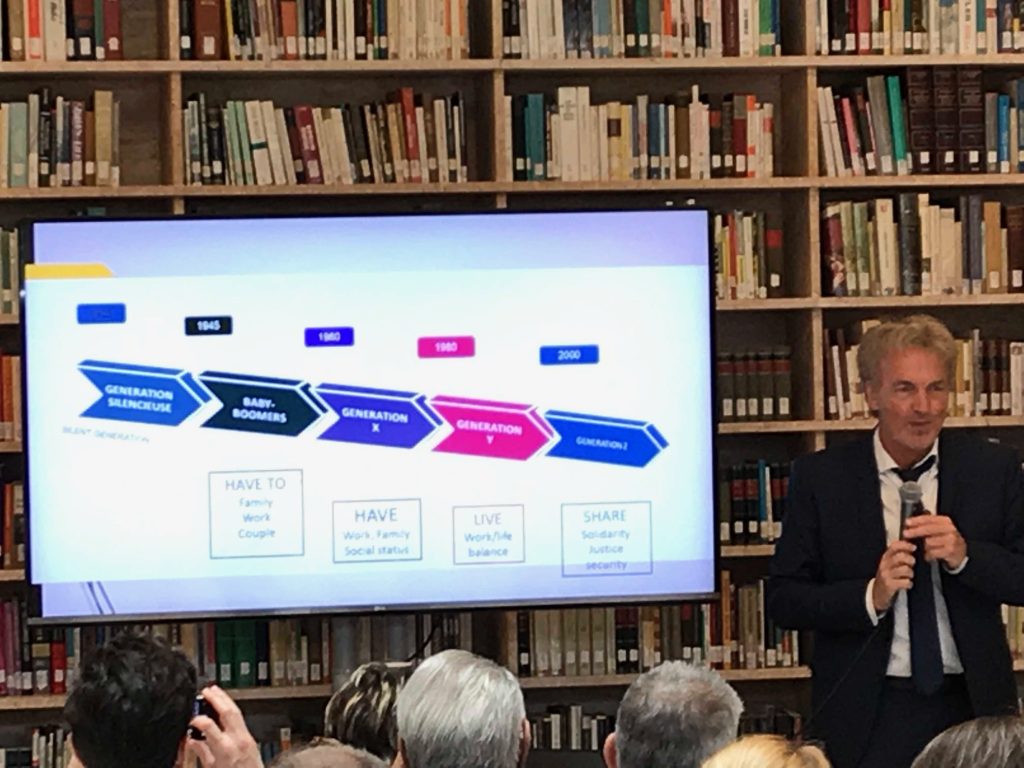It is very encouraging to hear my colleagues continue to refer to new knowledge gained from the Festival of Education. In this entry I’d like to reflect on Dr Olivier Revol’s talk about educating 21st century adolescents and “Understanding New Codes”.
Dr Revol began by reminding us of some essential features of adolescence:
1. Physical and psychological changes can be difficult to embrace/accept, and there is an unavoidable sense of loss in these changes.
2. With the feelings of loss come feelings of uselessness, which can easily lead to sadness.
3. Sadness in adolescents is shown by boredom and physical/psychic tiredness /irritability/ aggression.
4. Youngsters test our “coherence” (how consistent we are with our values, beliefs and actions), but at the same time they are reassured by that very coherence.
5. Opposition is fundamental to differentiation: the more we insist, the more adolescents will resist, (so pick your battles!)
6. It is now understood that the process of brain development doesn’t finish until age 25, but gray matter only increases until age 11– after that it’s “use it or lose it!”
Now, Dr Revol’s main idea was that the biggest challenge we have as educators (and parents) is to help adolescents develop autonomy. He gave a very interesting summary of what he considers to be the values that characterise different generations:

1940s: The value is “have to” (duty) with emphasis on family, work, couple
1960s: The value is “to have” (wealth) with emphasis on work, family, social status
1980s: The value is “to live” (experience) with emphasis on work/life balance
2000s: The value is “to share” (connection) with emphasis on solidarity, justice, security (and I would add communication)
The environment our students are growing up in offers unprecendented quantity and quality of temptations. Students are also “spoiled” by “helicopter parents” who are permanently available to step in when necessary to ensure that their child has access to all the services and privileges they feel entitled to. That said, our students’ generation has also been shaken by events that challenge their sense of security, such as climate change, terrorism, and more awareness of human rights violations.
If we keep in mind the values that are particular to this generation of youngsters, we can understand why Hierarchy is not important to them and why Legitimacy must be earned, not assumed. Dr Revol’s advice:
- Address students directly, accept criticism and say, “I don’t know” when relevant.
- Be willing to share your personal stories/experiences.
- Make requirements clear, and be ready to justify them.
- Convince, encourage, cajole and let them see you don’t take them for granted.
- Be authentic.
- Demonstrate empathy.
What I enjoyed the most about Dr Revol’s presentation was that it sought to understand adolescents beyond sweeping generalisations, by combining psychological understanding with socio-cultural understanding– what is it about this “Generation Z” that is particular, and why? What about their environment helps explain the new values they espouse, and how do we change our own behaviour to maximise results? This had clear practical application to our work as educators, and I can imagine it resonated with parents in the room as well.